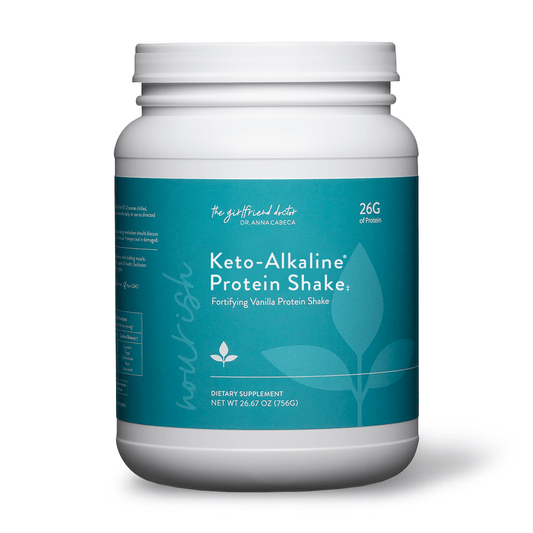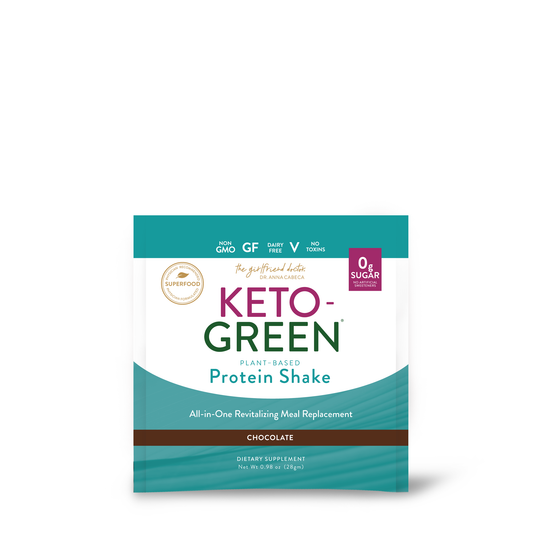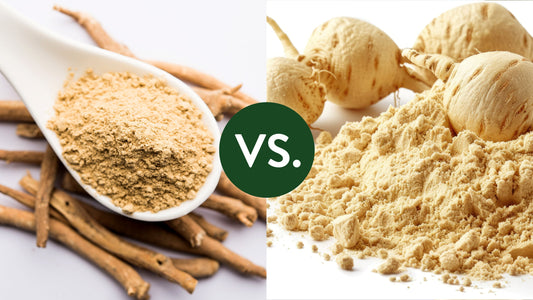As you enter perimenopause and menopause, your blood sugar levels tend to spike after meals, and levels of fat in your blood typically begin to increase as well. Even if you make no changes to your diet or exercise.
As a result, your body composition begins to shift. Muscle mass decreases, and body fat increases. That often means weight gain, fatigue, and an increased risk of serious health complications. Complications like:
Diabetes
Heart disease
Stroke
Osteoporosis
You can’t control the way your body is changing. But you CAN control your diet and tweak the circumstances to your advantage.
Here’s what to eat in perimenopause and menopause for more energy, weight control, bone health, brain health, and more.


Perimenopause, the transitional stage leading up to menopause, often begins in a woman’s 40s, though it can start earlier for some. During this time, the body undergoes significant hormonal shifts, primarily a decline in estrogen and progesterone levels. These changes can trigger a variety of symptoms, including fatigue, mood swings, and irregular periods.
One of the most common challenges during perimenopause is a noticeable drop in energy. Hormonal fluctuations directly affect how your body metabolizes food, regulates blood sugar, and produces energy. This is compounded by the natural aging process, which can lead to muscle loss, slower digestion, and less efficient energy production. Many women also report disrupted sleep patterns, further depleting their vitality.
The good news is that nutrition plays a powerful role in combating these challenges. By focusing on key macronutrients—protein, fat, and fiber (PFF)—you can fuel your body effectively, stabilize energy levels, and support overall health.
A tailored perimenopause diet can provide the foundation for feeling strong and energized throughout this transitional phase.
Why You Need Protein In Perimenopause And Menopause
Protein becomes increasingly vital during perimenopause, as hormonal shifts accelerate the natural loss of muscle mass. This condition, known as sarcopenia, can reduce strength, impact metabolism, and contribute to fatigue. A diet rich in high-quality protein is essential for preserving muscle and maintaining a healthy body composition during this phase of life.
Protein supports muscle repair and growth by providing the amino acids your body needs. It also promotes satiety, helping to manage weight, a common challenge during perimenopause.
Research suggests that women in perimenopause and menopause may benefit from increasing their protein intake to about 1–1.2 g/kg per day. For a lot of women, this works out to 70-75 grams of protein per day, a level that appears to support blood sugar balance and body composition as you age. (2)
Incorporating protein into every meal doesn’t have to be complicated. Foods like chicken, turkey, eggs, Greek yogurt, tofu, and legumes are excellent sources. Additionally, snacks such as nuts, seeds, and protein smoothies can fill the gaps between meals while boosting your intake of fiber, too.
For even greater benefits, consider pairing protein with resistance exercises like weightlifting or bodyweight workouts. This combination can help counteract muscle loss, keeping you strong and energized throughout perimenopause and beyond.
Healthy Fats For Energy And Hormonal Balance
During perimenopause, healthy fats play a crucial role in maintaining energy levels and supporting hormonal health.
As estrogen production declines, the body relies on dietary fats to produce hormones and regulate important processes, including metabolism and brain function. Incorporating the right types of fats into your diet can provide sustained energy, support healthy levels of inflammation, and improve overall well-being.
Not all fats are created equally. Focus on healthy fats such as omega-3 fatty acids, monounsaturated fats, and some polyunsaturated fats.
These can help reduce inflammation and support heart health, which is especially important as the risk of cardiovascular disease increases during perimenopause. Omega-3s, found in fatty fish like salmon and mackerel, as well as walnuts and flaxseeds, are particularly beneficial for brain function and mood regulation.
Monounsaturated fats, found in avocados, olive oil, and nuts, provide long-lasting energy and promote cell health. Additionally, including sources of fat at every meal can slow digestion, stabilize blood sugar levels, and prevent the energy crashes associated with an imbalance in blood sugar.
To integrate healthy fats into your diet, drizzle olive oil over salads, add avocado slices to sandwiches, and snack on a handful of almonds or walnuts. By doing so, you’ll be giving your body the nutrients it needs to navigate perimenopause with energy and vitality.
For a deeper dive into this way of eating, be sure to check out my best-selling perimenopause diet book, The Hormone Fix . It will help you balance your hormones and reclaim your energy!
Fiber For Bone Health, Digestion And Hormones
Fiber is a nutritional powerhouse for women in perimenopause, offering a range of benefits that go far beyond regular digestion. As estrogen levels drop, the risk of osteoporosis and cardiovascular issues increases. A fiber-rich diet supports bone health, heart health, and overall energy levels by supporting healthy levels of inflammation and stabilizing blood sugar.
Fiber contributes to better bone health indirectly by enhancing the absorption of critical nutrients such as calcium and magnesium. It also promotes a balanced gut microbiome, which plays a surprising role in managing inflammation and supporting hormonal health. High-fiber diets have been linked to lower levels of C-reactive protein (CRP), a marker of inflammation that can accelerate age-related issues. (3,4)
For energy management, fiber is key. By slowing the absorption of sugar into the bloodstream, fiber prevents energy crashes and helps maintain a steady level of glucose. This is especially important in combating the mid-afternoon slumps common during perimenopause.
Incorporate fiber into your meals with foods like low-sugar fruits (berries, apples), and tons of vegetables (broccoli, brussels sprouts). A daily goal of at least 25-30 grams of fiber can make a noticeable difference in both your energy and long-term health.
Crafting A Perimenopause-Friendly Meal Plan
Building a diet that supports energy, muscle mass, and bone health during perimenopause doesn’t have to be complicated. By focusing on a balance of protein, healthy fats, and fiber, you can create meals that fuel your body and combat common symptoms like fatigue and weight gain.
Here’s an example of a one-day meal plan designed with perimenopause health in mind:








To simplify meal preparation, consider chopping vegetables in advance, or pre-portioning snacks.
With a little planning, you can create a diet that helps you thrive through perimenopause and menopause.
Perimenopause Foods To Avoid
While including the right foods in your diet is essential during perimenopause, it’s equally important to avoid or limit certain foods that can exacerbate symptoms like fatigue, mood swings, and weight gain.
Here are some of the worst culprits that can make you feel sluggish and tired.


Refined carbs, such as white bread, pastries, and sugary snacks, can cause rapid spikes and crashes in blood sugar, leading to energy dips and cravings. Excess sugar can also contribute to weight gain, which becomes harder to manage during perimenopause. Instead, opt for naturally sweet fruits to satisfy your cravings without the energy rollercoaster.


Many processed foods are high in sodium, unhealthy fats, and preservatives, which can lead to bloating, water retention, and increased inflammation. These foods are often low in nutrients, leaving you feeling unsatisfied and fatigued. Focus on whole, minimally processed options to nourish your body effectively.


Alcohol can disrupt sleep. (5) It can even worsen hot flashes and contribute to mood swings. While an occasional glass of wine is fine for many women, excessive alcohol consumption can interfere with hormone regulation and deplete your energy. If you do drink, keep it moderate and hydrate well.


While a morning coffee can boost energy, excessive caffeine can increase anxiety, disrupt sleep, and worsen hormonal imbalances for some women. If you’re experiencing perimenopause-related insomnia or anxiety, consider switching to herbal teas or decaf options in the afternoon and evening.


Trans fats, found in fried foods, baked goods, and some margarine, are harmful to heart health and can increase inflammation. Since heart disease risk rises during perimenopause, it’s best to eliminate trans fats from your diet and replace them with healthy fats like avocado or olive oil.


A high-sodium diet can lead to water retention and bloating, two common complaints during perimenopause. Be cautious with canned soups, frozen meals, and salty snacks, and opt for fresh ingredients seasoned with herbs and spices instead.
By reducing your intake of these foods, you can better manage perimenopause symptoms and maintain consistent energy levels. The key is balance—enjoying treats in moderation while prioritizing nutrient-dense options.
Perimenopause Diet: The Power Of PFF
Navigating the changes of perimenopause and menopause can feel overwhelming, but a well-balanced diet can make a significant difference in your energy levels, muscle mass, and bone health.
By focusing on the essential macronutrients—protein, fats, and fiber (affectionately known as PFF) you can create a foundation for vitality during this transitional phase of life.
For a meal replacement that deftly balances all three, be sure to check out my Keto-Green Protein Shake for a delicious, chocolatey drink that feels like a treat. It really is that good.














